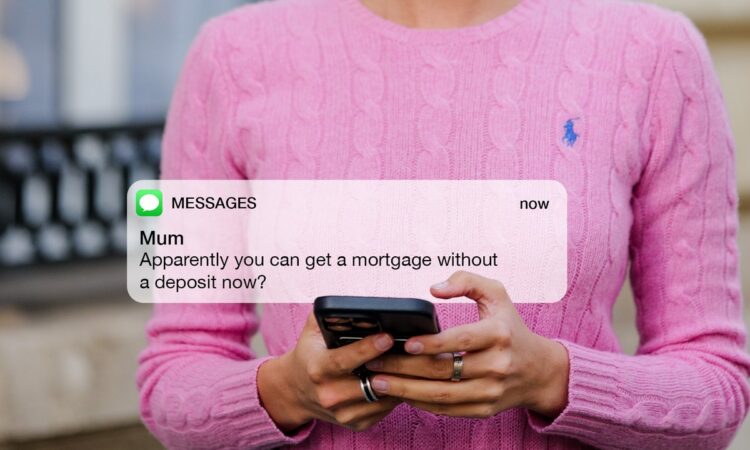
Deposit-free mortgages – no financial guarantor necessary – have become available for the first time since the 2008 financial crash, which is a Pretty Big Deal. For those who are renting and struggling to save a deposit for a home, getting a mortgage can seem like an impossible dream – but with the recent reintroduction of deposit-free deals, that could all change.
Skipton Building Society has made the news by announcing its 100% loan-to-value mortgage, which requires no deposit and no financial backing from family or friends – making it the first of its kind in around 15 years.
A few deposit-free mortgages have been available since 2008, but have always required a financial guarantor to be named on the mortgage – meaning they would need to meet any missed repayments and would also be at risk of home repossession or a loss of their own deposit into the mortgage.
So, Skipton’s new offering sounds pretty appealing. To qualify for the deal, you must be a first-time buyer with proof of 12 months’ worth of on-time rental payments and a good credit history – sounds good, right? But at 5.49%, the interest rate is more expensive than the average five-year fix of 5%.
Even so, many renters – who once considered buying their own home a pipe dream – will surely be interested in a no-deposit mortgage option. But what are the risks?
GLAMOUR spoke to Kate Anderson, deputy editor at personal finance comparison site finder.com, to find out everything you need to know about no-deposit mortgages…
What is a deposit-free mortgage?
“Very simply, a deposit-free mortgage is one where you don’t need to contribute a deposit,” says Laura. “Your mortgage provider will lend you 100% of the value of your property. Say you are looking to buy a house that is £280,000. Rather than having to save up 10% of the price of the property (£28,000) and then borrow the remaining £252,000, you can go ahead and borrow the full £280,000.”
How do deposit-free mortgages work?
“With a deposit-free mortgage, you’ll need to talk to the lender who is offering this type of mortgage and see if you meet all its eligibility criteria,” she says.
“For example, Skipton’s new deposit-free mortgage requires that you are a first-time buyer, you have a good credit score and you have proof of having paid at least 12 months’ rent in a row, during the last 18 months. It’s designed to help those who haven’t been able to save for a deposit because they’ve been caught in the rental cycle.
“If you manage to secure a deposit-free mortgage offer, the mortgage works like any other. You’ll make your monthly repayments based on the loan amount, term and interest rate applied to the mortgage.”
What are the risks involved with deposit-free mortgages?
“The biggest risk involved when looking at a 100% mortgage is negative equity,” says Laura. “This can occur when the value of your property falls and the value of your loan is more than that of the property.
“If you haven’t paid a deposit, you’ve got less cash invested in your property, so the amount of equity you have in your home is likely to be lower. So a fall in house prices could push you into negative equity as there is very little buffer.”
She adds: “If this happens, it’s not necessarily an issue if you’re happy with your lender and not looking to move. You can wait out the market until house prices rise again. But if you’re looking to make any sort of change, you could find yourself stuck and unable to move without taking a financial hit.
“You’ll also find deposit-free mortgages tend to be more expensive, as they have a higher interest rate. This is largely because there aren’t that many available, so you can’t really shop around for a competitive rate.”






